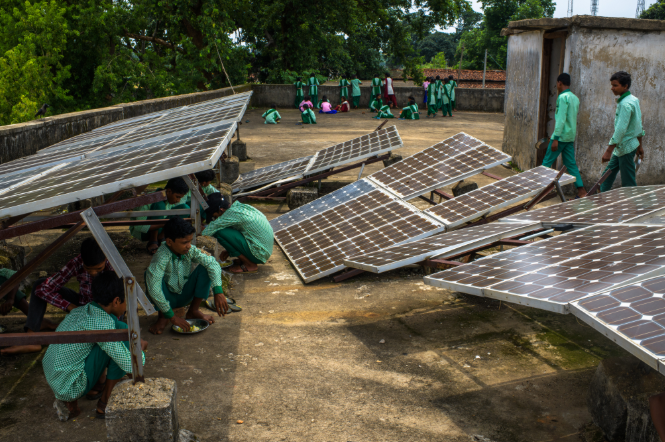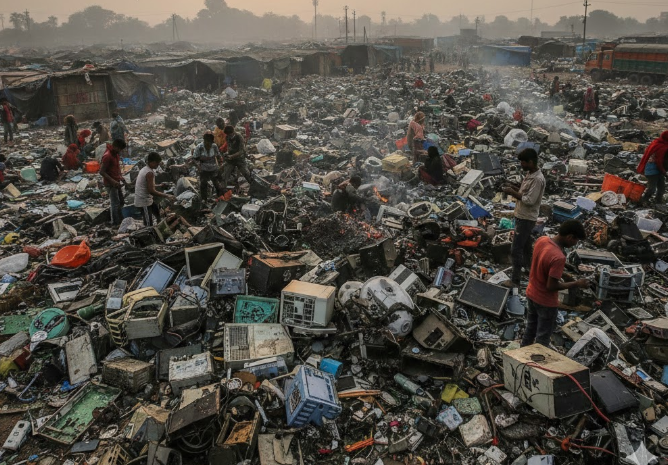Combining environmental education with urban greening efforts, we inspire the next generation and create dense, carbon-capturing forests in our cities to combat climate change
Empowering readers with in-depth insights into climate change, innovative solutions, and sustainable practices to foster informed eco-friendly actions.
Reducing emissions to pave the way for a sustainable future where GHG emissions are equal to GHG sequestration. Pathways for achieving carbon-neutrality and exploring energy-efficient solutions across various sectors including energy, transportation, agriculture, and construction.
Flowing through eastern Uttar Pradesh, the Tamsa River has long been an integral part of rural life—supporting agriculture, culture, and daily livelihoods. However, like many small rivers across India, it gradually fell victim to neglect. Increasing silt deposits made sections shallow, while plastic waste, household garbage, and encroachments choked its natural flow. What was once a lifeline began to resemble a polluted drain, raising concerns among local communities.

Exploring renewable energy (wind, solar, hydro, H₂) alternatives to fossil fuels to achieve carbon-neutrality goals. Ways to reduce the dependency on conventional fuels and building renewable energy capacity.
In the far-flung hills of Manipur, where winding roads and rugged terrain often keep communities cut off from reliable infrastructure, electricity has long been a distant dream. For many households, darkness would fall early—not just at sunset, but on opportunities for education, livelihoods, and progress. However, one man’s vision has begun to rewrite this narrative. Seth Moirangthem, through his initiative SNL Energy Solutions, is bringing light—both literal and transformative—to some of the most underserved regions of Northeast India.

Understanding the challenges and opportunities with e-Waste and its management across the world. Innovative solutions to reduce, reuse, repurpose and recycle e-waste to generate income and employment.
India’s rapid digital transformation has brought undeniable economic and social benefits, but it has also created an escalating environmental challenge—electronic waste, or e-waste. A recent report by the Central Pollution Control Board (CPCB) highlights a troubling reality: while e-waste generation is rising steadily, systems to manage it remain inadequate and poorly implemented.


India and New Zealand are deepening their partnership by prioritising collaboration in science, innovation, and climate action—marking an important step toward sustainable development. Both countries are exploring joint initiatives across sectors s...

At the India AI Impact Conference 2026 held at Bharat Mandapam, New Delhi, Meghalaya emerged as a forward-looking state by presenting its initiatives in AI-led governance and climate action. The conference, part of India’s broader push to position ...
Rapid urbanization and growing urban affluence tend to have profound environmental consequences causing threat to human beings and the environment. Prolonged ignorance of the ecological feedback is affecting every living and non-living element on Earth. The human ecosystem is bearing the brunt in matters of health, city and regional problems, disrupting social structure, economic inequalities as well as global sustainability. Such environmental changes are distinctly visible in rapidly growing Indian cities and urban agglomerations and even rural regions. Excessive land and air pollution, increased carbon footprint owing to fossil fuel-based energy use, deforestation, depleting water quality, problems of electronic waste disposal, declining population of flora and fauna – to name a few.
